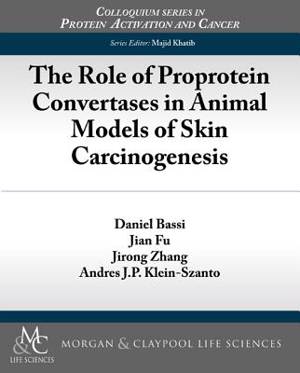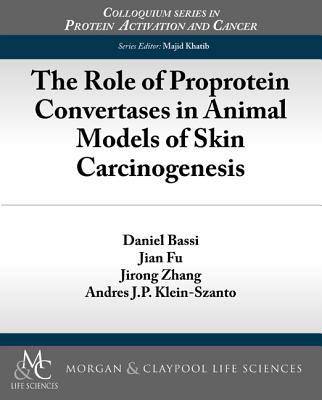
- Afhalen na 1 uur in een winkel met voorraad
- Gratis thuislevering in België vanaf € 30
- Ruim aanbod met 7 miljoen producten
- Afhalen na 1 uur in een winkel met voorraad
- Gratis thuislevering in België vanaf € 30
- Ruim aanbod met 7 miljoen producten
The Role of Proprotein Convertases in Animal Models of Skin Carcinogenesis
Daniel Bassi, Jian Fu, Jirong ZhangOmschrijving
Many proprotein convertases (PC), especially furin and PACE4, are involved in pathological processes such as viral infection, inflammation, hypercholesterolemia, and cancer, and have been postulated as therapeutic targets for some of these diseases. In this chapter, we review mostly our work using animal models of squamous cancers that have been induced by chemical or UV carcinogenesis protocols to highlight the role of PCs in the development and progression of experimental tumors. After demonstrating in wild type mice the role of PACE4 in tumor progression as well as detecting the expression of PACE4 and furin in human non-melanoma skin cancers, we developed transgenic mice that over-express either PACE4 or furin in squamous epithelia, including the epidermis. This was accomplished by targeting the expression of the corresponding PC by using the promoter of the bovine keratin 5. Both K5-PACE4 and K5-Furin transgenic mice showed increased susceptibility to a two-stage carcinogenesis protocol of chemical carcinogenesis. Similar studies conducted in K5-PACE4 mice also showed an increased sensitivity to ultraviolet B radiation carcinogenesis. In most of these experiments, we were able to demonstrate that compared to the control wild type mice, the over-expression of the transgene in the epidermis increased the number of benign and malignant skin tumors and also had an effect on tumor progression as evidenced by the presence of less differentiated tumors and more frequent local and distant metastases in many of the transgenic lines. Interestingly, double transgenic mice in which PACE4 and furin are targeted to the epidermis did not show any additive effect, pointing to a probable in vivo overlap of functions at least in cutaneous tissues.
The tumor-enhancing effects of PACE4 and furin further support their possible role as therapeutic targets. Furthermore, a proof of principle for PC inhibition as a therapeutic tool has been substantiated by an in vivo experiment in which the PC-inhibitor, decanoyl-RVKRchloromethylketone, was topically administrated to the skin of wild type and transgenic mice treated with chemical carcinogenesis protocols, resulting in a significant decrease of tumor development and progression.
Specificaties
Betrokkenen
- Auteur(s):
- Uitgeverij:
Inhoud
- Aantal bladzijden:
- 70
- Taal:
- Engels
- Reeks:
Eigenschappen
- Productcode (EAN):
- 9781615045082
- Verschijningsdatum:
- 1/07/2012
- Uitvoering:
- Paperback
- Formaat:
- Trade paperback (VS)
- Afmetingen:
- 190 mm x 235 mm
- Gewicht:
- 117 g

Alleen bij Standaard Boekhandel
Beoordelingen
We publiceren alleen reviews die voldoen aan de voorwaarden voor reviews. Bekijk onze voorwaarden voor reviews.











